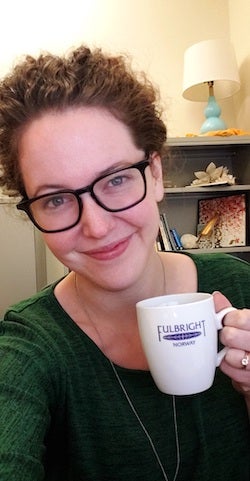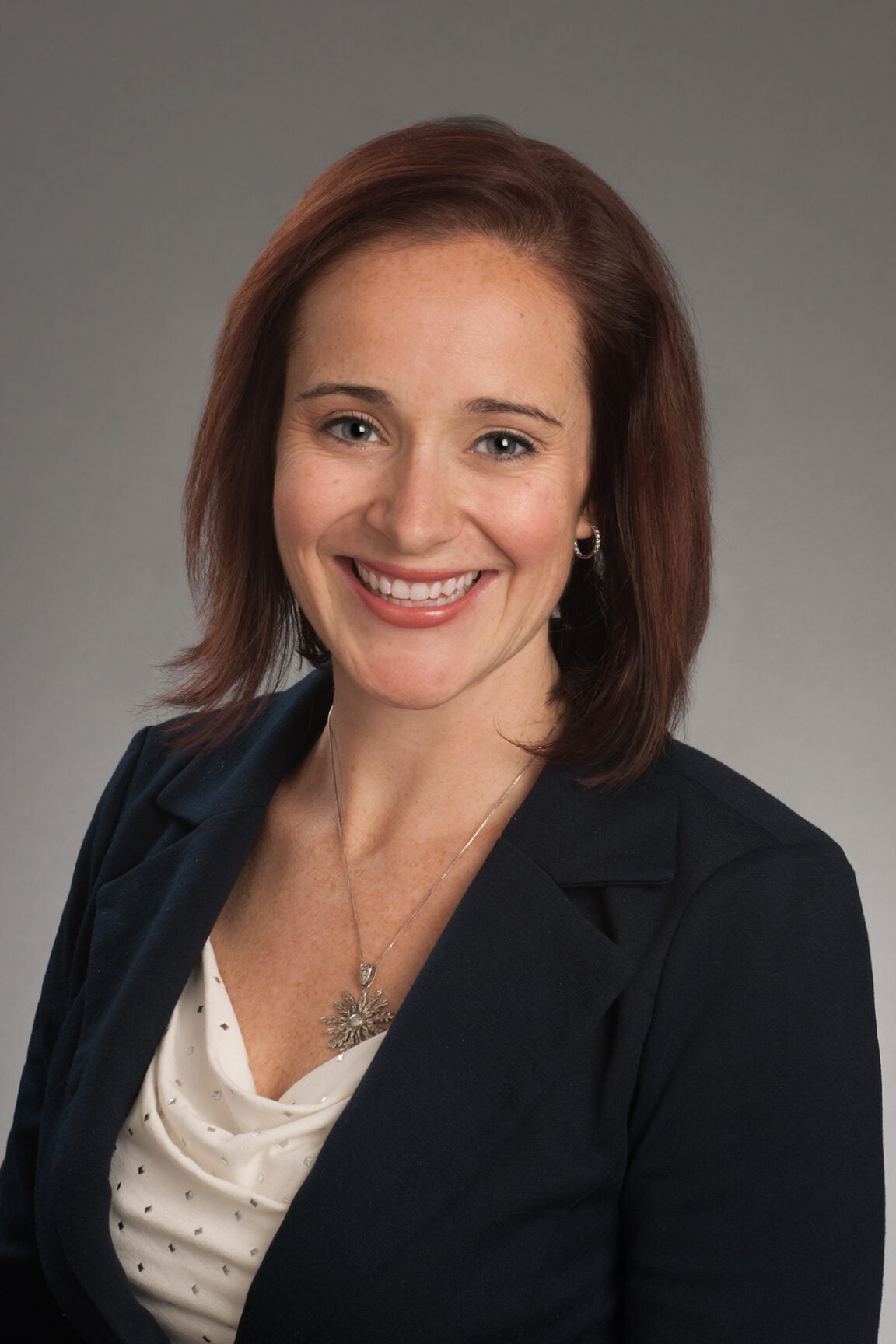
Like the recently announced Goldwater Scholars, Boise State continues to match students with prestigious fellowship opportunities. Aside from the recognition this brings to the work students are doing, it also highlights the importance of the university’s fellowship advisor, Kate Huebschmann, who supports candidates throughout the application process.
“Kate is the backbone of Boise State’s wonderful success with national fellowships,” said Andrew Finstuen, dean of the Honors College. “She pours her intellect and ear for the written word into working with these students and their aspirations.”
Huebschmann has been in the role since 2016, but she has a longer history with Boise State. An alum, she graduated in 2013 with degrees in technical communications and visual arts, received a Fulbright Scholarship to teach English in Norway, and worked part-time on administrative and marketing projects for the Honors College before transitioning to her role as fellowship advisor.
Fellowships are sources of funding that come from entities outside of Boise State. Generally, these are short-term opportunities that focus on professional development or funding graduate degrees and are sponsored by national and international organizations. As these are nationally competitive awards, Huebschmann works closely with students to prepare their applications, especially the written components.
“My rule of thumb is it takes six drafts to get to the good stuff, and at least eight drafts to get to the polished product,” she said. “Sometimes it takes more. We are talking about intense writing feedback with months of edits back and forth.”
The common themes Huebschmann tries to highlight on applications are the student’s ability to talk about past life experiences, to think ahead to their future and to articulate goals in a cohesive manner.
“I call it their ‘forever, for now’ goals,” she said. “These plans aren’t set in stone, but what I try to aim for is a narrative, showcasing their experience and identifying how this opportunity will feature in the story by helping them meet future goals.”
Finstuen agrees that refining this narrative with students is one of Huebschann’s greatest skills.
“Year after year wins have come, but the wins tell only part of the story,” he said. “Students come away from their engagement with Kate, no matter the outcome of the application, having learned a lot about who they are, what their college education has meant, and what their plans are for the future.”
While her position is housed within the Honors College, Huebschmann stresses that she is available to help any student, whether they are part of that college or not. She says that of the fellowship recipients she works with, at least a third of them are not affiliated with the Honors College.
“I applied for the Fulbright, basically on a whim, because a friend had applied previously and been accepted,” Huebschmann added when referring to her first-hand experience of how perceptions can inhibit one from pursuing fellowship opportunities. “I assumed, as an applicant from a state college in Idaho, that I wouldn’t be competitive, but organizations get excited having a broad pool of applications, not just students from big schools on the coasts.”
Working with students is the most satisfying part of Huebschmann’s job, she said. Whether it’s frantically sending text messages about last minute edits before a deadline, or learning about new artificial intelligence research, she is continually impressed by the scholars of Boise State.
“Our students are doing really cool things,” she said. “Their work is so interesting and it’s satisfying to help students tell their story in a way that shows others the importance of the work. Boise State students are definitely on par with their peers nationally and doing great things.”
Learn more about Boise State’s Fellowships Advising Office.
Become a donor to support students at Boise State.
Inspired? Let's Chat!
-

Argia Beristain
Associate Vice President for Development